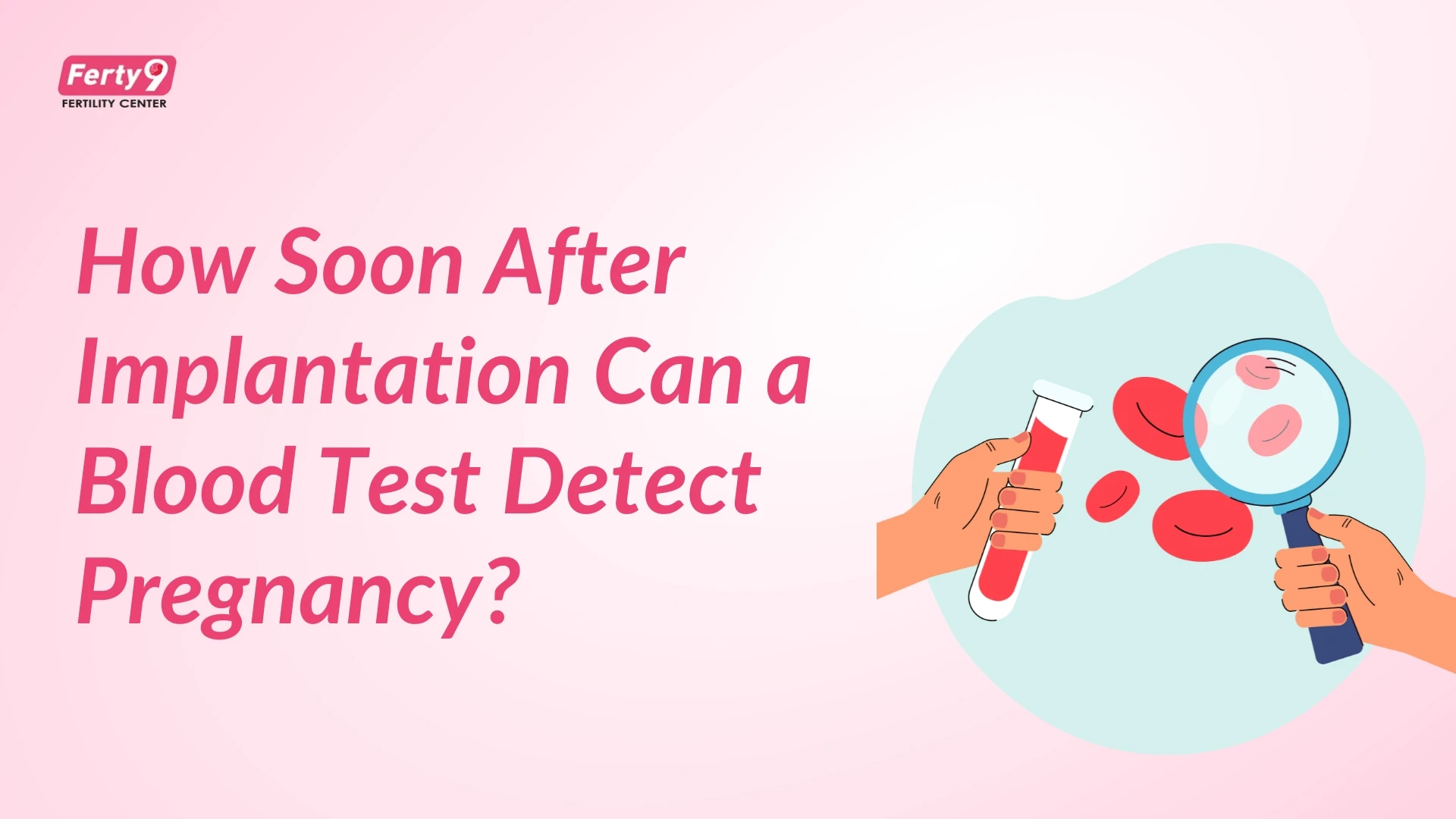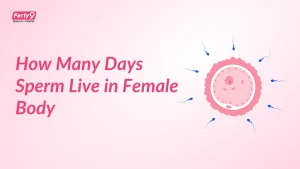For every couple on a fertility journey, the wait for a confirmed pregnancy is a period of immense anticipation. You’ve gone through the procedures, whether IUI or IVF, and are now watching the calendar, wondering when you can finally know for sure. While home pregnancy tests are an option, the most accurate and definitive answer comes from a blood test.
At FERTY9, a leading fertility centre in India, a common question we get is, “Exactly how soon can a blood test tell if I’m pregnant?” This blog post will break down the answer in simple, easy-to-understand terms.
Also Read: How Soon Can a Pregnancy Test Be Taken After Implantation?
What is Implantation?
First, let’s quickly recap the most crucial step: implantation. This is the moment a fertilized egg (embryo) attaches itself to the lining of your uterus. As soon as this connection is made, the embryo starts producing a special hormone called human Chorionic Gonadotropin (hCG).
This hCG is released directly into your bloodstream. This is why a blood test is the gold standard for early pregnancy detection—it can spot even the tiniest amounts of this hormone circulating in your body.
Two Types of Pregnancy Blood Tests
When you come to our clinic for a pregnancy test, we perform what is called a Beta-hCG test. It’s important to know there are two types:
- Qualitative hCG Test: This is a simple “yes” or “no” test. It just checks if there is any hCG in your blood. It gives a positive or negative result.
- Quantitative hCG Test (Beta-hCG): This is the test most commonly used in fertility treatments in India. It is far more detailed. Instead of just a “yes” or “no,” it measures the exact amount of hCG in your blood. This is crucial because it not only confirms a pregnancy but also tells us if the hormonal levels are rising appropriately for a healthy, developing pregnancy.
So, How Soon Can a Blood Test Detect hCG?
A blood test is incredibly sensitive. It can detect very low levels of hCG, much lower than a urine test can.
To answer the main question: a blood test can potentially detect hCG as early as 2 to 4 days after successful implantation.
Let’s look at the timeline:
- Day 0: Implantation: The embryo attaches, and hCG production begins.
- Day 1-2: Tiny amounts of hCG enter the bloodstream. The level is likely too low to be reliably measured, even by a blood test.
- Day 3-4: The hCG level rises to a point where a sensitive quantitative blood test can now detect it. For a test to be considered positive, the hCG level is typically above 5 mIU/mL. This level is often reached around the 3rd or 4th day after implantation.
Why Your Doctor Asks You to Wait
If a blood test can detect pregnancy so early, why do fertility clinics like FERTY9 ask you to wait for about 14 days after your IUI or IVF procedure?
This is a very important question, and there are sound medical reasons for this waiting period:
- To Ensure a Meaningful Result: While a test might be positive 3-4 days after implantation, the hCG level would be very low. A single low number doesn’t give us enough information. We need to see a strong, significant level of hCG to have confidence that the pregnancy is progressing well.
- To Avoid Pregnancy Confusion: Sometimes, an embryo implants and produces hCG, but then stops developing very early on. This is known as a “biochemical” or “chemical” pregnancy. Testing too early might pick up this initial hCG, leading to a positive result that is followed by a period a few days later. This can be an emotional rollercoaster. Waiting allows us to see if the hCG levels are rising steadily, indicating a viable clinical pregnancy.
- To Rule Out the “Trigger Shot”: In many fertility treatments, an hCG “trigger shot” is used. This medication can stay in your bloodstream for up to 12 days. Testing too soon can detect the hCG from the medication, not from a pregnancy, giving a false-positive result. The 14-day wait ensures that the trigger shot has cleared your system.
The FERTY9 Promise: Accuracy and Care
The two-week wait is undoubtedly challenging. However, waiting for your scheduled Beta-hCG blood test gives you the most accurate, reliable, and meaningful result. It provides a clear confirmation and gives our doctors the crucial information they need to guide you on the next steps of your pregnancy journey.
We are here to support you during this time. Trust the process and the timeline recommended by your specialist. We are hoping for the best news for you and your family.




























